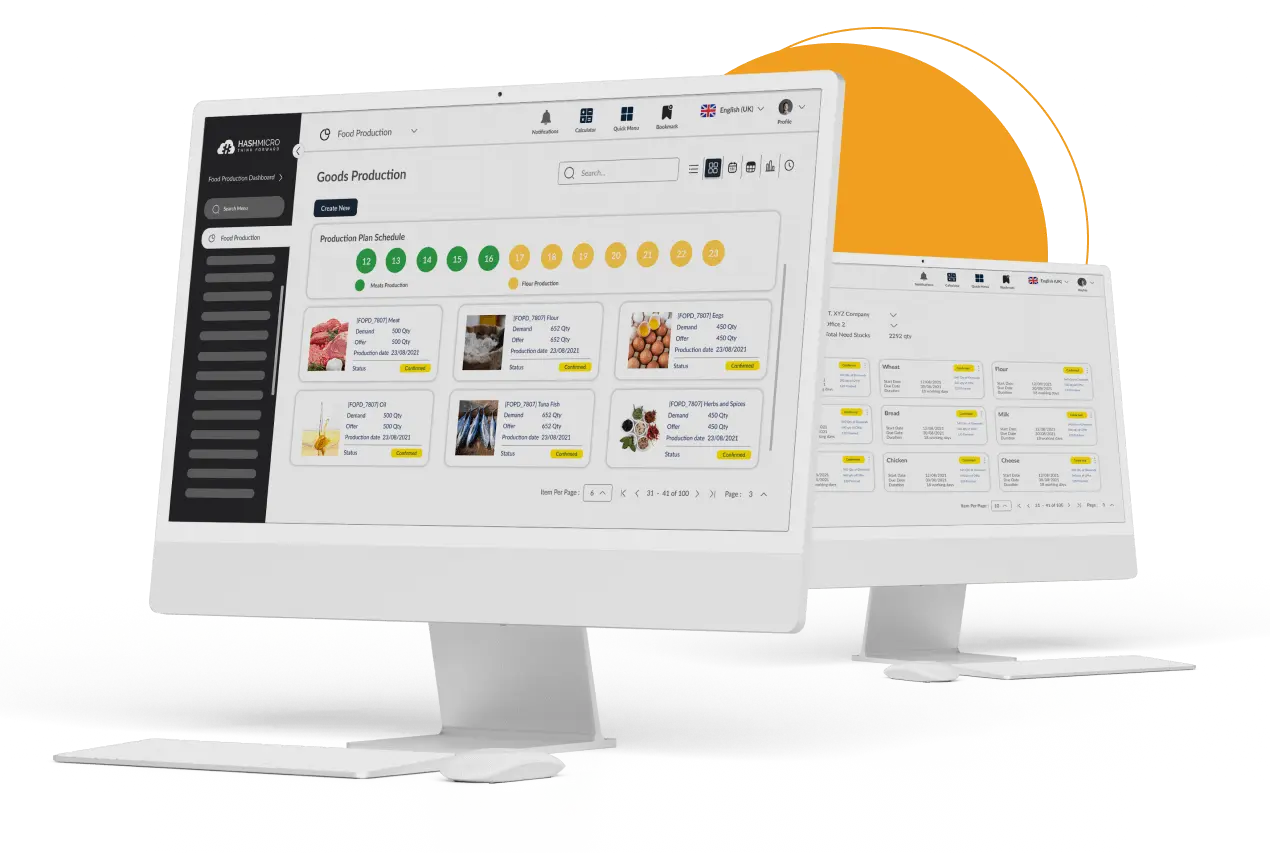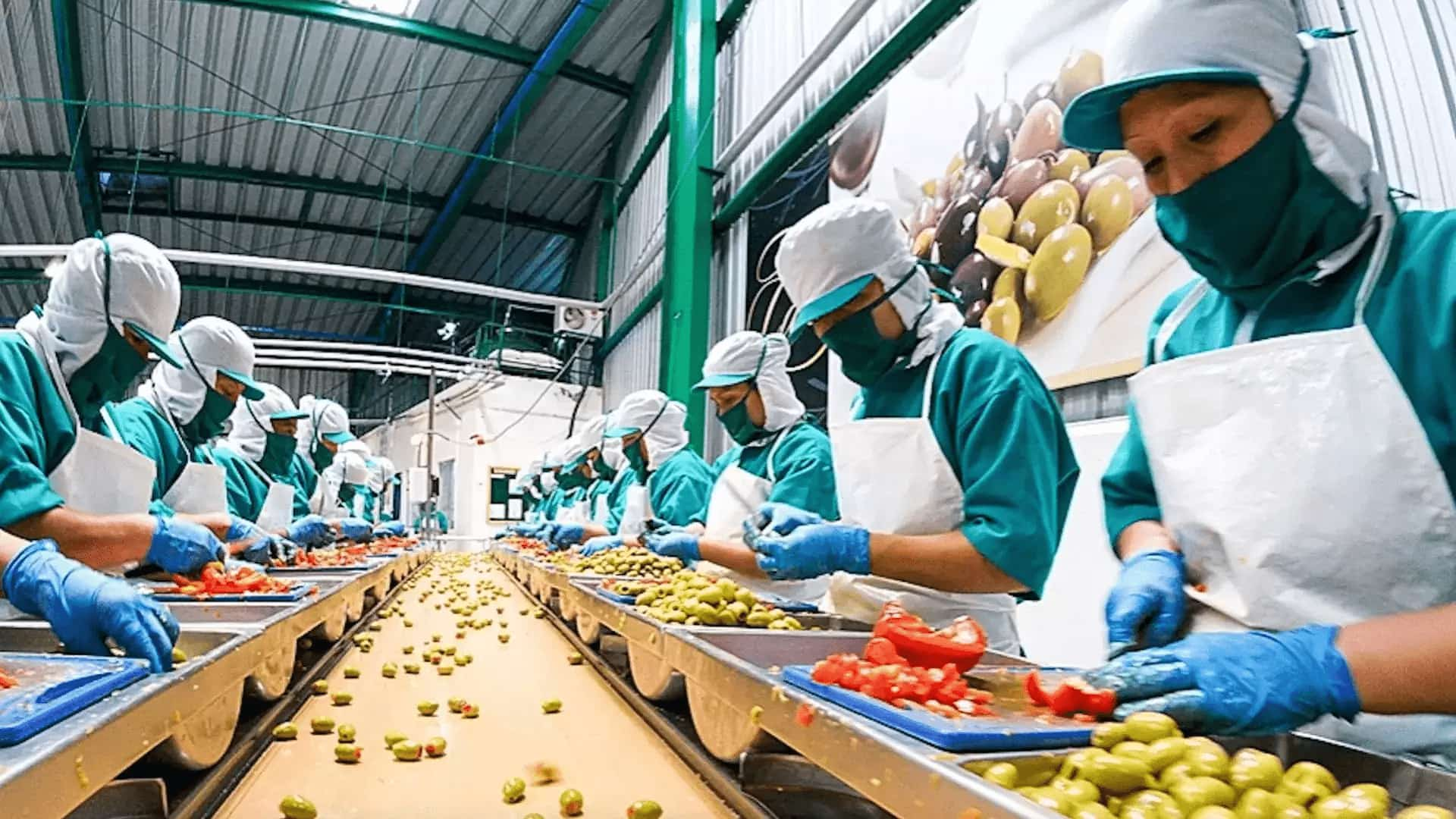Without a good food production system in a restaurant, there are risks of running out of ingredients, producing inconsistent dishes, and also compromising the safety and quality of the served food. Therefore, a restaurant needs to establish a reliable food production system. This is where the ERP-supported food production system comes in.
A food production system refers to the process and methods used to transform raw materials into finished food products. I found that a restaurants require an efficient and effective food production system to operate smoothly and maximize productivity.
There are several reasons why you should utilize an ERP-supported system, particularly given its numerous benefits. Try our free demo and discover how it can easily enhance your restaurant operations.

Key Takeaways
|
What is a Food Production System in a Restaurant?
A food production system in a restaurant refers to the organized process of planning, preparing, cooking, and serving food efficiently to meet customer demand. It covers everything from ingredient sourcing and inventory management to meal preparation, portion control, quality assurance, and timely service.
For example, a restaurant may use a batch production system to prepare soups in bulk each morning or a made-to-order system for dishes like pasta, which are cooked fresh after receiving the order.
A study found that a real-time process management system in a full-service restaurant showed that sharing order information in real-time between dining room staff and the kitchen decreased delays, improved coordination, and helped track the elapsed time of each order.
How ERP Supports the Food Production System in a Restaurant

ERP empowers restaurants to manage every aspect of food production—from sourcing to serving on one integrated platform. It improves efficiency, reduces waste, and ensures consistent quality, making it an indispensable tool for modern food businesses.
Here is how ERP support the food production system in a restaurant:
-
Time management is a must
Time management refers to planning and organizing one’s time effectively to accomplish and achieve something. It involves prioritizing tasks, allocating sufficient time to each, and ensuring deadlines are met.
Effective time management helps individuals and organizations improve productivity, reduce stress and anxiety, and increase efficiency. You can manage your time by creating schedules, setting goals, and utilizing tools and technology to automate tasks.
-
Manage restaurant waste easier
Restaurant waste refers to the byproducts or excess materials generated during restaurant operations, including food waste, disposable utensils, and packaging.
Proper waste management is crucial for restaurants to minimize waste, conserve resources, and mitigate environmental damage. A way to manage waste is by composting, recycling, and reducing the use of single-use items.
-
Provide saved recipe access
Saved recipe access refers to your ability to store, organize, and access recipes through electronic devices. Recipes are crucial in a restaurant as they play a role in maintaining consistency and quality in food production.
With saved recipe access, it will be easier to share recipes between staff members or across different restaurant branches.
-
Food quality management
Food quality management is the process of ensuring the quality of the food products meets the required standards throughout the entire food production process.
In the restaurant industry, food quality is crucial for satisfying customers. Food quality management involves monitoring and controlling ingredient quality, food handling, storage, and preparation methods during the food production process to maintain the quality.
Improve Your Restaurant Operation with HashMicro Food Production System

HashMicro is the best ERP software in Singapore, helping restaurants streamline every step of their operations—from sourcing ingredients to serving customers. By centralizing purchasing, inventory, and kitchen processes it ensures precise stock control and reduces over-ordering or shortages.
HashMicro’s ERP-powered Food Production System provides real-time data tracking, enabling chefs and managers to monitor ingredient availability and production schedules, ensuring smooth workflows and consistent food quality.
Here are the key features of the HashMicro Food Production System:
1. Ordering portal: The ordering portal streamlines the process of requesting ingredients from suppliers or central kitchens. This ensures the timely procurement of fresh ingredients, preventing stockouts and reducing delays in food preparation.
2. Supplier management: By managing supplier relationships in one system, restaurants can track delivery schedules, compare prices, and maintain consistent quality of ingredients essential for smooth and cost-efficient production.
3. Kitchen screen: The kitchen screen displays incoming orders in real time, allowing chefs and staff to prioritize and prepare dishes efficiently. This enhances workflow, minimizes miscommunication, and accelerates service.
4. Delivery management: For restaurants offering delivery or managing multiple branches, this feature helps plan routes, track deliveries, and ensure the timely arrival of meals, maintaining quality and customer satisfaction.
5. Inventory management: Inventory tracking ensures that ingredients are monitored from storage to production, preventing waste, spoilage, or over-purchasing. This optimizes ingredient use and lowers operational costs.
6. Central kitchen reports: Restaurants with multiple outlets can rely on centralized reports to analyze production performance, inventory levels, and waste data. These insights enable better forecasting, planning, and cost control across all branches.
Conclusion
Running a restaurant is challenging; without the right food production system, it’s hard to make informed decisions, keep customers satisfied, and maintain efficiency.
HashMicro’s ERP-powered Food Production Software streamlines ingredient sourcing, waste tracking, and overall production management, helping you cut waste and boost sustainability. Start your free demo of HashMicro’s F&B Technology Software today.

FAQ About Food Production System in a Restaurant
-
Why is a food production system important for restaurants?
It ensures consistent food quality, streamlines operations, improves inventory control, reduces costs, and boosts customer satisfaction.
-
What are the main components of a restaurant’s food production system?
Key components include ordering & procurement, inventory management, kitchen operations, waste tracking, recipe & portion control, and reporting & analytics.
-
How does technology improve the food production system?
Using software or ERP-based solutions automates ingredient tracking, integrates orders with kitchen screens, monitors waste, and generates real-time reports, making the process faster and more accurate.
































